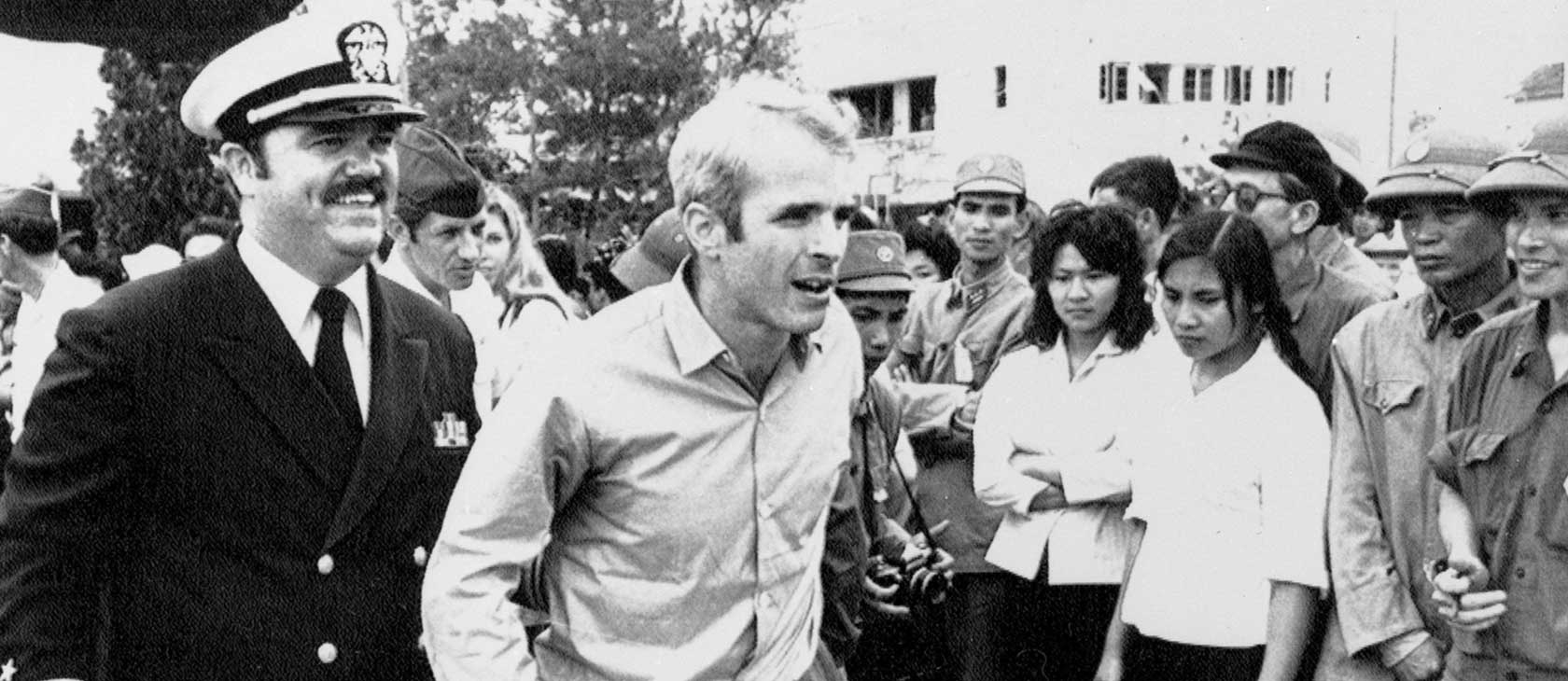Sen. John McCain, who passed away on Saturday, is undeniably the most famous prisoner of war held captive and tortured by the North Vietnamese. McCain was one of 591 Americans returned by North Vietnam over several months during “Operation Homecoming” in 1973. But in our current politicized era, McCain’s fame somewhat overshadows the leadership and lessons of many other great Americans tortured by their Marxist captors.
McCain often praised fellow prisoners as being “stronger” and “braver” than himself, giving credit to leaders like Medal of Honor recipient Bud Day for saving his life. Sadly, much of the media and our politically obsessed culture are focused more on leveraging McCain’s death for today’s political scoreboard. However, if America wants to right its ills, it must relearn the moral lessons and servant leadership from those tortured in Hỏa Lò Prison – the infamous Hanoi Hilton – and other camps.
If America wants to right its ills, it must relearn the moral lessons and servant leadership from those tortured in Hỏa Lò Prison
Another notable POW at Hỏa Lò was Admiral James Stockdale. He is well-known in American politics too, as Ross Perot’s running mate in 1992. Stockdale was supposed to be a stand-in candidate until Perot settled on a more “polished” replacement. But Perot never pulled the trigger. Stockdale’s performance in the debate with former Vice President Dan Quayle and then-Senator Al Gore was widely mocked, particularly by entertainment figures. Ed Rollins, former campaign director for Reagan-Bush 84, worked with the Perot campaign and called it the greatest political injustice of his lifetime. “Congress should pass a law requiring every person who laughed at him during the vice-presidential debate to read the citation that explains why Stockdale received the Medal of Honor for his conduct as a senior prisoner of war in Hanoi for more than eight years,” wrote Rollins.
Before his foray into national politics, which was just a favor to a friend, Stockdale was a college president, a Hoover Institution fellow, lecturer, and scholar of the classics. In his book “Thoughts of a Philosophical Fighter Pilot,” Stockdale wrote, “Those who study the rise and fall of civilizations learn that no shortcoming has been surely fatal to republics as a dearth of public virtue, the unwillingness of those who govern to place the value of their society above personal interest.”
Robinson Risner is another POW McCain effusively praised. For good reason. Risner has a statue commemorating his heroics and defiant attitude towards his torturers on the U.S. Air Force Academy campus near Colorado Springs, Colo. He wrote one of the most haunting and arresting accounts of his ordeal in “The Passing of the Night.” Like Jeremiah Denton’s “When Hell Was in Session,” and Jerry Coffee’s “Beyond Survival,” these books are authoritative depictions of the centrality of faith in the fight against a materialistic worldview and secularism that has now wreaked moral havoc and angst across the Western world.
Many of these men preceded McCain in death. After all, they were the more senior officers who sacrificially and so often took the brunt of the torture, attempting to shield those under their command. Virtually all of them were aviators, and many never flew again, their bodies too twisted and ravaged for the cockpit. Some POWs like Lance Sijan and Ronald Storz were tortured to death for their country. Many of them languished so long in North Vietnamese prisons that they came back to an entirely different America that, for them, offered up shocking images of moral and cultural decline.
The legacy and witness left by these warriors is not about power or politics, but service and sacrifice
Much of the political and media praise being heaped on McCain is for partisan political purposes, such as CNN’s coverage, which stressed every point on which the talking heads perceived McCain to be politically different from (and better than) President Donald Trump. But the legacy and witness left by these warriors is not about power or politics, but service and sacrifice. “In the Hanoi Hilton, I learned that leading with honor is about doing the right thing, even when it entails personal sacrifice,” wrote former POW Lee Edwards.
In his literary masterpiece “When Hell Was in Session,” Denton noted that “We can now add our testimony to that of great heroes like Solzhenitsyn and Sakharov.” In a country starving for truth, a new generation of Americans would be wise to read and acquaint themselves with the testimony of why such sacrifice produced such unity and greatness against enormous odds. One can hope that much of the enormous outpouring of deserved gratitude and respect for McCain can transcend politics, and move the nation towards a life of sacrifice in the service of something far greater.



